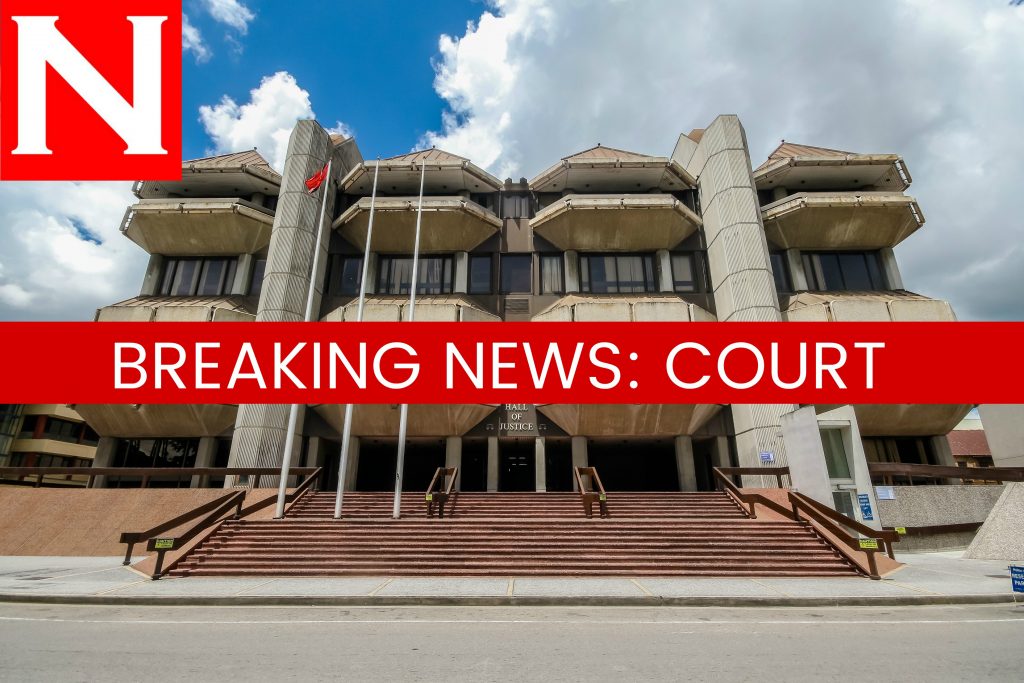Judge on police: 'Worst type of malice'

A HIGH COURT judge who ordered compensation for a man arrested in December 2011 said if it had been within his powers, he would have made the police officers responsible pay personally.
Justice James Aboud, ordering the State to compensate John Achap for assault and battery, malicious prosecution and false imprisonment, described the police’s actions as the “worst type of malice” he has ever seen as a judge.
A High Court Master is to assess damages for Achap, but Aboud said unfortunately, the taxpayer would be liable.
The judge also sent a copy of his ruling to the Commissioner of Police and the Police Complaints Authority for further investigations of the three police officers involved.
Achap said he was in his car outside CAPS Bar in Curepe when one of the policemen approached and asked for his driver’s permit and insurance. When he got out of the car, he was arrested. His daughter was with him at the time, and Achap was kicked, punched and handcuffed and thrown in the trunk of the police vehicle.
He said he was first taken to the St. Joseph Police Station, then to the Tunapuna Station, bleeding and in handcuffs. Achap’s wife, a senior police officer, visited him and he was taken in handcuffs to the Eric Williams Medical Science Complex and then the Port of Spain General Hospital for treatment.
Three days later, he was charged with assaulting one of the policemen and resisting arrest.
In its defence, the State argued that the police officer came to the opinion Achap was drunk after he was approached in his car, stumbled when he was asked to get out, pushed the officer and had to be subdued. They also claimed while being taken to the police station, he began banging his head against the window, shouting and threating the officers, who decided to handcuff him.
Aboud said there was no dispute over the extent of Achap’s injuries.
“There was blood everywhere. His head was busted. There was blood all over his clothes. There was blood on the cell wall.”
The judge also rubbished the State’s defence that because Achap took Zoloft and Rivotril for anxiety and depression, when combined with a few beers, this would have made him unstable, aggressive and violent.
“No scientific proof was presented to satisfy me that the admixture of either of these two medications would have produced the type of aggression and violence that the policemen allege that he was guilty of,” the judge said.
He also said he was troubled that the police claimed Achap was arrested because they suspected he was drunk, but there was no evidence that he had been breathalysed.
“I did not believe their evidence of him being drunk and disorderly, in a nutshell,” he said, also pointing out that Achap had not been charged with driving under the influence.
The police claimed that was because of an administrative error.
Aboud also said he was troubled by the route the police allegedly took to get to the Tunapuna police station, saying based on Google Maps, the route doubled the length of the journey.
“Doubled! Now, Farm Road is a quiet, deserted road. It is not the Southern Main Road, where cars are passing back and forth. If they want to put some licks on somebody, that’s the type of road they would want to drive on,” Aboud said.
He also said there was no need to handcuff Achap to a gurney at the hospital “as if he was some sort of animal. When I say animal, I mean a beast, some criminal gang leader or some(thing). I just don’t understand it. And then to carry him to the magistrates’ court after hours is unacceptable to me.”
In finding that the police had no reasonable cause to arrest Achap, the judge also said he was satisfied Achap was co-operative and did not resist the police.
“He went along. In fact, the daughter went with him…
“This was a prosecution that was based completely and solely on malice. In fact, it is one of the cases where it’s the worst type of malice I have ever seen as a sitting judge. This gentleman was targeted and, it seems to me, maliciously targeted.”
He also questioned the type of men who would do what they did to Achap in the presence of his daughter.
“These are men who feared no authority whatsoever, who fear no reprisal and who believe that there are no consequences for misbehaviour,” he said, describing the policemen’s explanation for their “horrendous beating” as “ludicrous.”
Achap was represented by attorney Gregory Delzin.


Comments
"Judge on police: ‘Worst type of malice’"